To Slow Time, Savour the Shortest Season
The lone maple among the white pine and spruce outside the window of my “writing nook” transformed into autumn colours so subtly I only registered differences every few days. As the days grew shorter and colder, the leaves became more vivid, and suddenly, they’re gone. The barely perceptible pace of change gave me pause to reflect that rather than saving time, the nano-second fast technology at our fingertips speeds its passage.
So much is available so fast that we’ve got something new to consider before we’ve even really absorbed, never mind appreciated, the now.
The acceleration began subtly, in lock-step with the process of global warming that is altering seasons for the worse. Until the 19th century, days were ordered by sunrise and sunset. The factory whistles of the Industrial Revolution cut that into demanding, regimented segments. The Computer Age has whipped them into frantic moments. Who among us isn’t irritated when a computer takes more than a few seconds to boot up, or obey a search or other command? The faster the process, the more we do, the less patience we have, which paradoxically speeds up time.
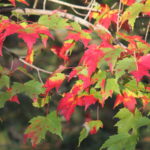
Watching a seasonal change seems to me to be a much more productive, and certainly healthier way to mark time. Autumn is generally the shortest of Canada’s four distinct seasons. Like fine wine and single malt, it is best when savoured. There is, of course, a price for the privilege, but in the wondrous logic of Nature, there is always a payback. All summer long, the leaves on the poplars signal the approach of rain by turning upside down.
As the weather folklore of the Farmer’s Almanac (which in this case happens to be true) describes it: “When leaves show their undersides, be very sure rain betides.
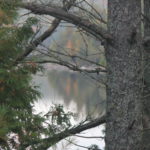
I must listen to the radio or check my laptop for a weather report now, but in place of the leaves, there’s a window-like view across the lake. It makes, almost welcome, the times my computer doesn’t do exactly what I want when I want, and I look up from it in what would normally be frustration, and often ire.
A MYSTERIOUS, SUBTLE PROCESS
In this part of Canada autumn is a glorious link between the all-too-short warmth of summer and what will, in a few months, feel like an endless season of biting cold days, snow shovelling, icy hazards and long dark nights.
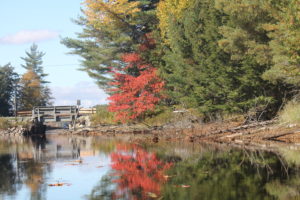
The progression from lush green leaves to a riot of colour to bare branches and dead leaves rustling on the ground, turning into nourishment for new growth in the spring, is as logical and complex as a network of microprocessors in a computer system.
Leaf cells contain chlorophyll, an extraordinary chemical that absorbs energy from sunlight, and use it to transform carbon dioxide and water into carbohydrates, such as sugars and starch. Less daylight and lower temperatures slow the process and the lack of chlorophyl allows other colours inside the leaves to show.
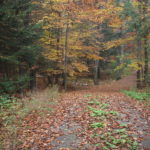
Once the leaves’ food-making process is no longer viable, the tree forms a barrier between them and its branches and the leaves, and lets them go. (I confess I used “nano-technology” to learn that.)
NO OPTION DEADLINES
As magical, even exciting as autumn can be to humans, for other creatures, it’s a deadline. Adopting John Lennon’s wisdom that “Life is what happens to you while you’re busy making other plans” isn’t an option.
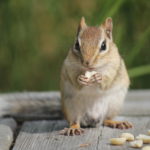
My resident chipmunk stuffs cheek pouches full of the nuts I lay out, scampers off to store them and is back making a chirping sound to demand more before the jar can be put away.
Having spent a working life as a hostage to deadlines — filing copy in time to make the next edition of a newspaper, driven by unalterable satellite time to get a TV story on air — I understand and sympathise with his frantic activity.
The chipmunk will enjoy his efforts through months of semi-hibernation in a snug, snow-covered burrow.
The joy of conquering a journalism deadline is brief, overtaken by the relentless approach of the next one. As much as I loved the challenges (and rush), there’s much to be said for spending time without a watch on your wrist, or in your head. And being grateful you’re not a chipmunk.
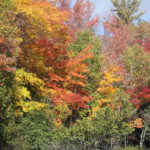
While the inexorable acceleration of technology cannot be ignored, from now on, every time my computer stutters, I’ll try to look up, remember the maple, and treat the break as a season, even if it is only measured in seconds.
Comments are welcomed. Just Click CONTACT
To receive alerts of future posts, Click SUBSCRIBE
6 thoughts on “To Slow Time, Savour the Shortest Season”
Contact didn’t work so am here. Seems the point is enjoy the good as long and as much as you can. Please keep writing.
I will
AP: Mellowing with the seasons??
I’ve always been mellow…I just hid it well.
Lovely reflections, Pizz.
The photos? Or my musings?